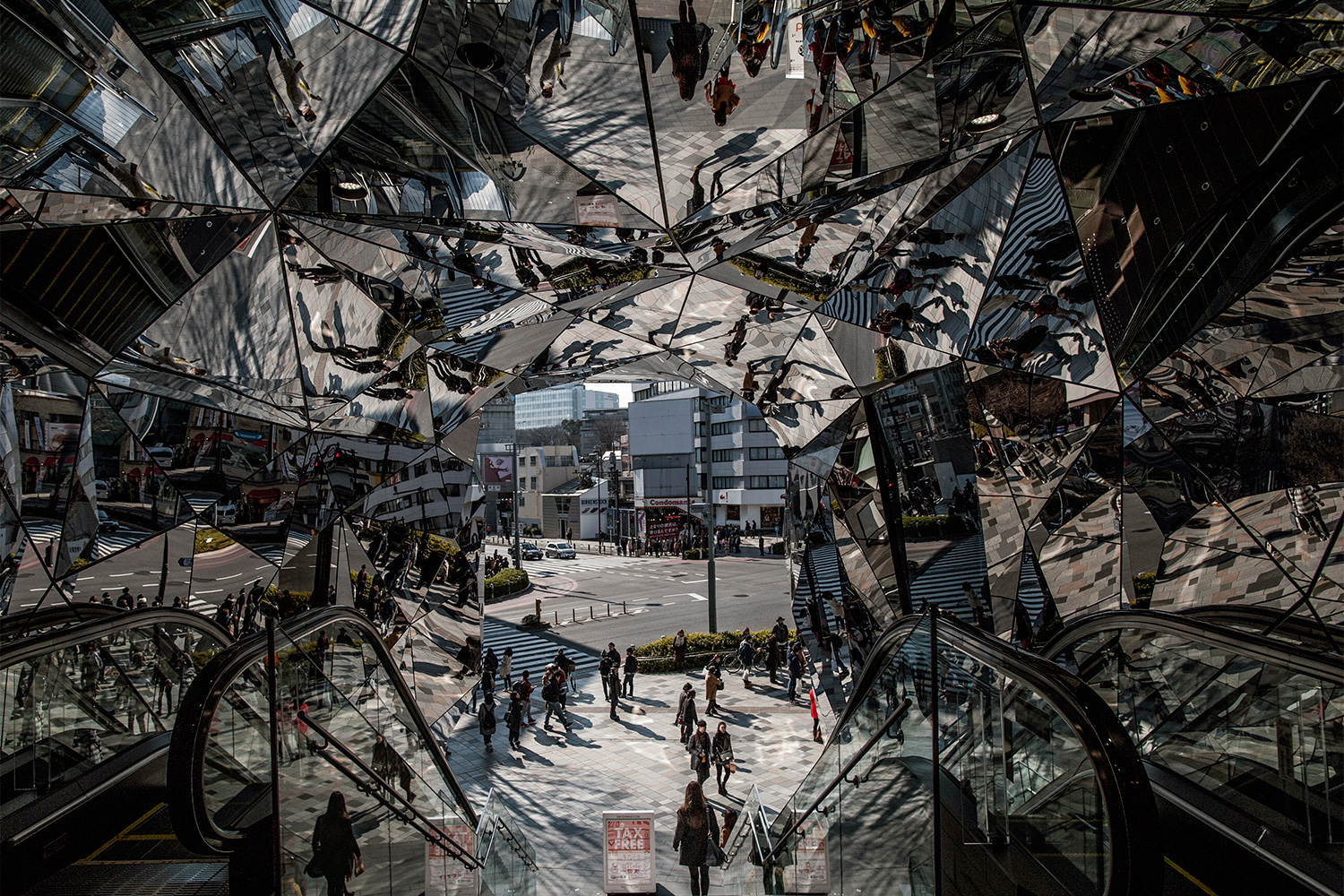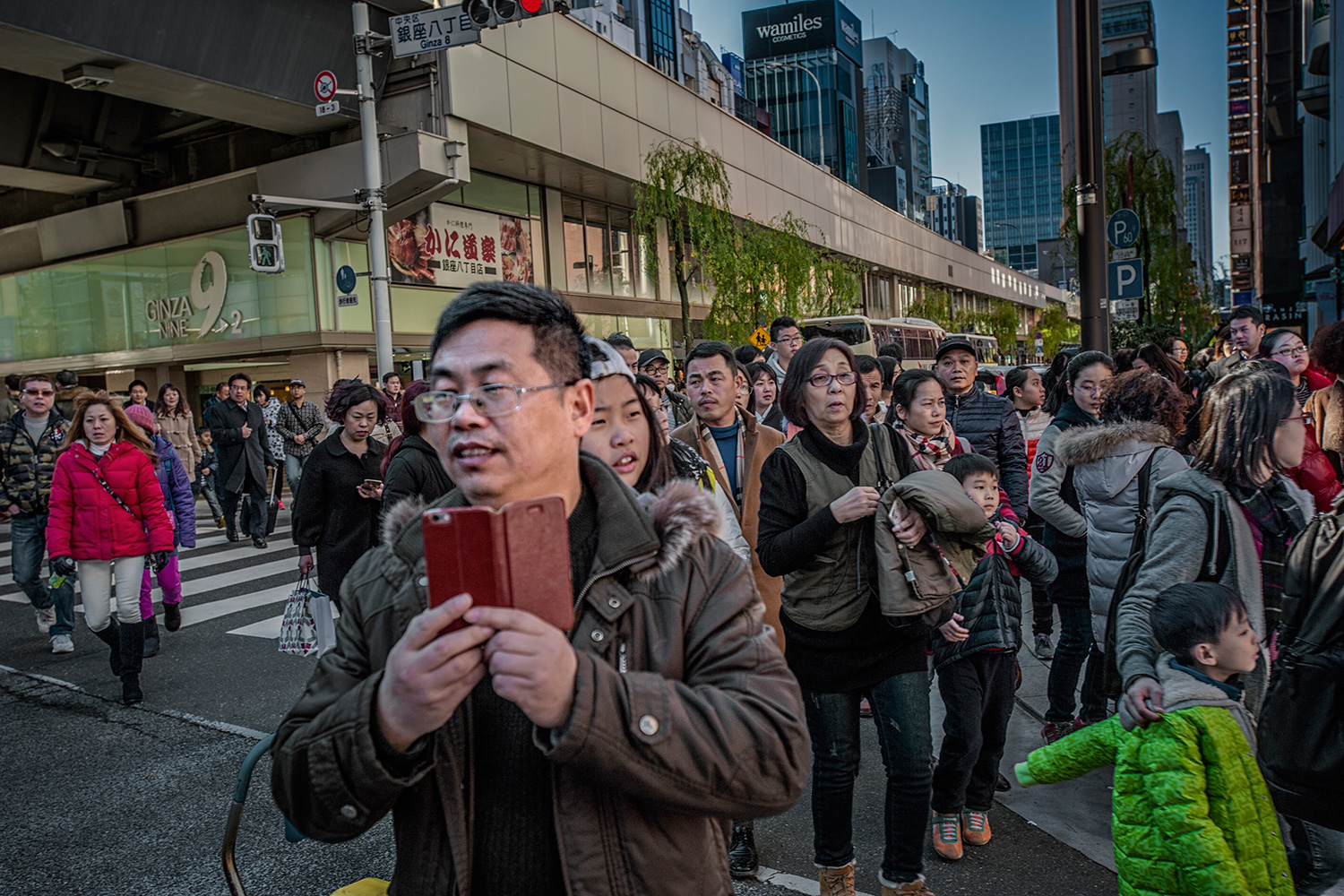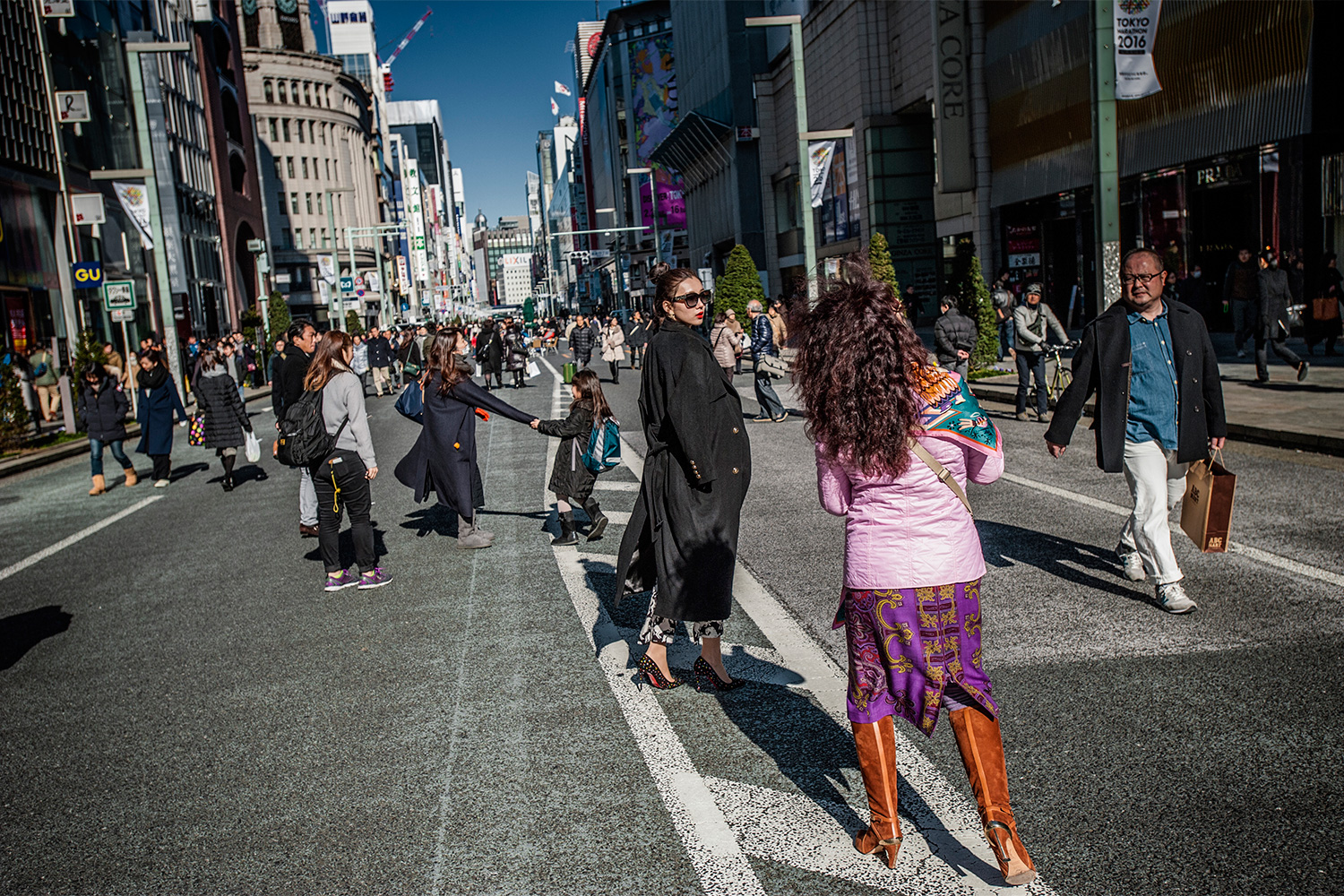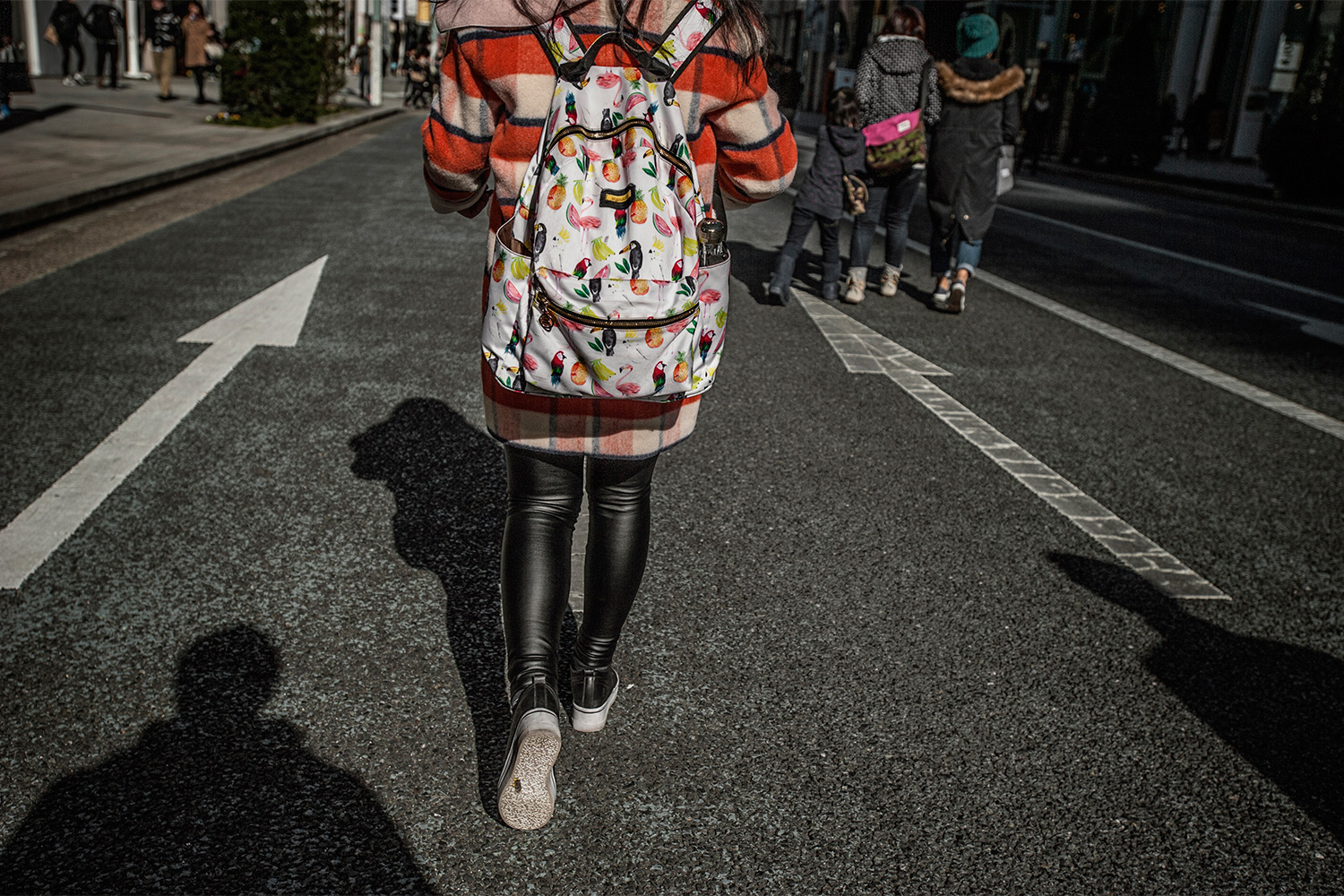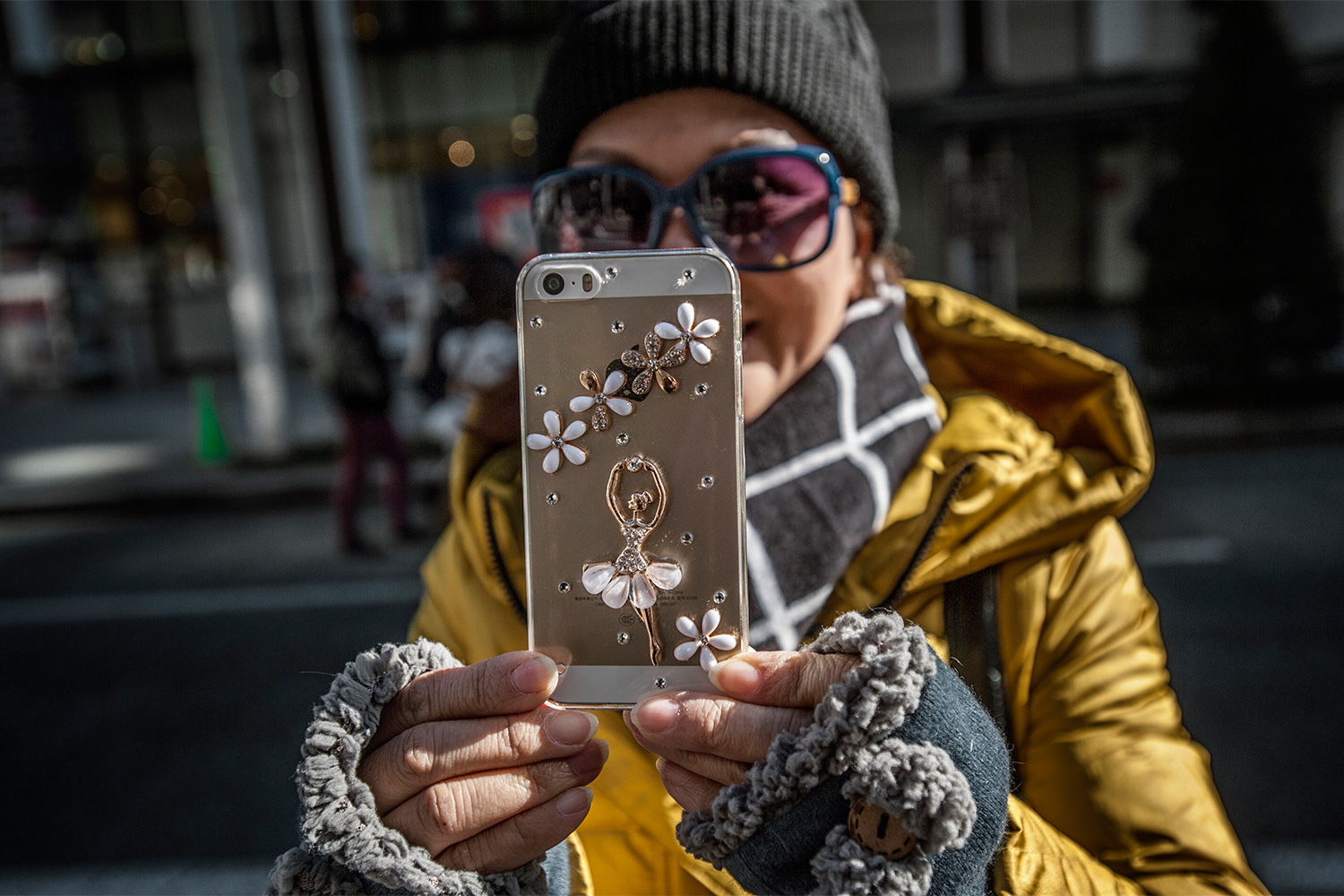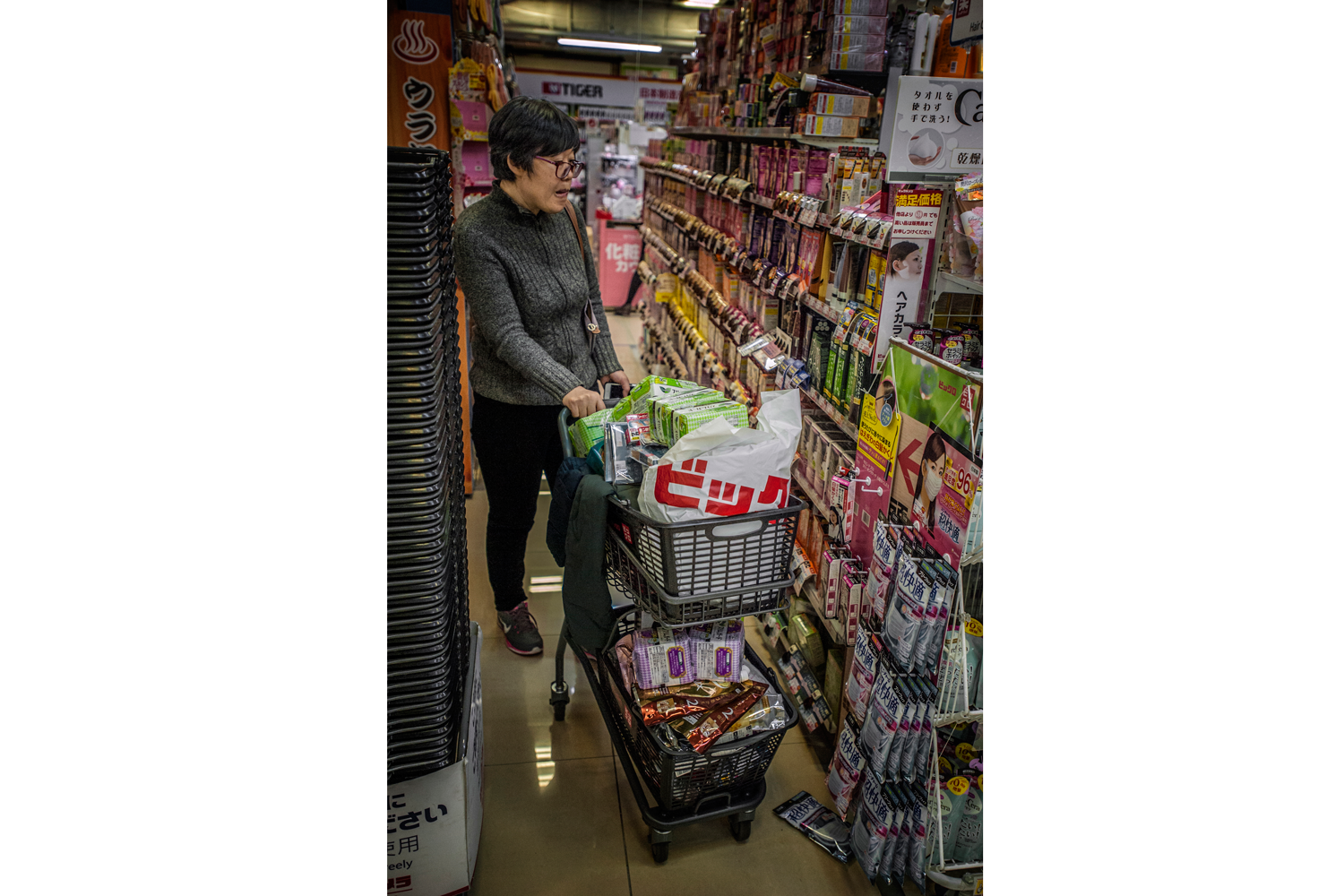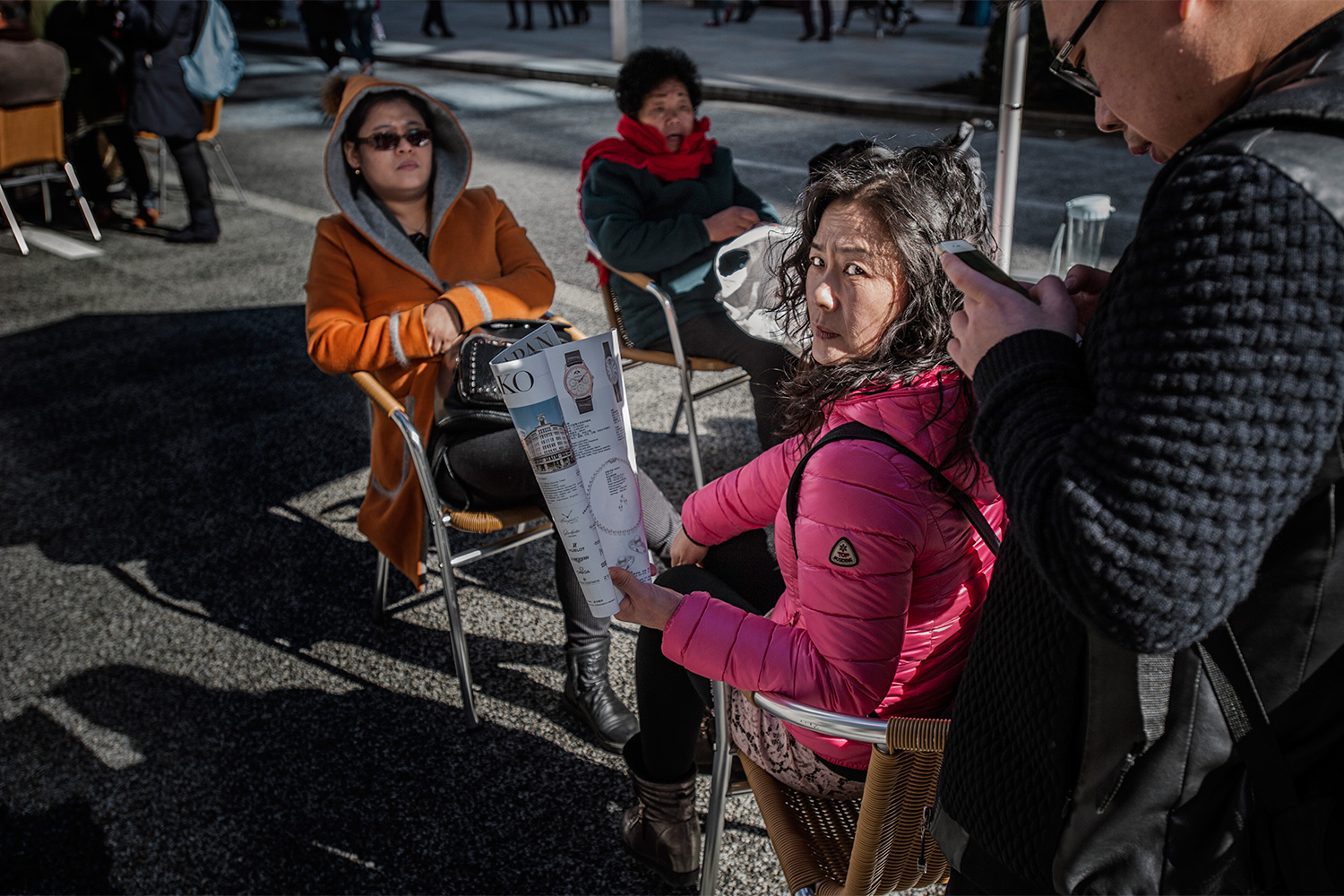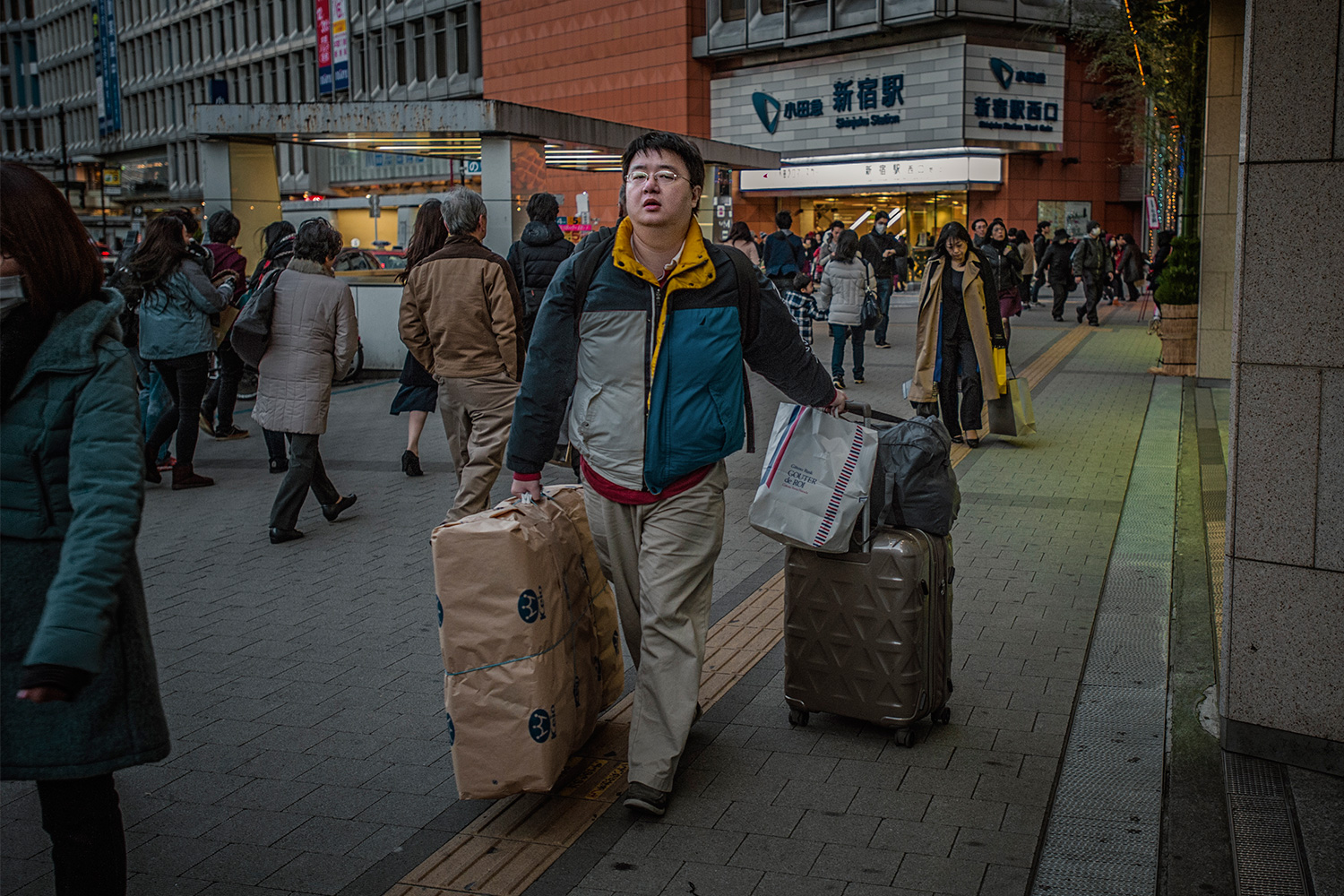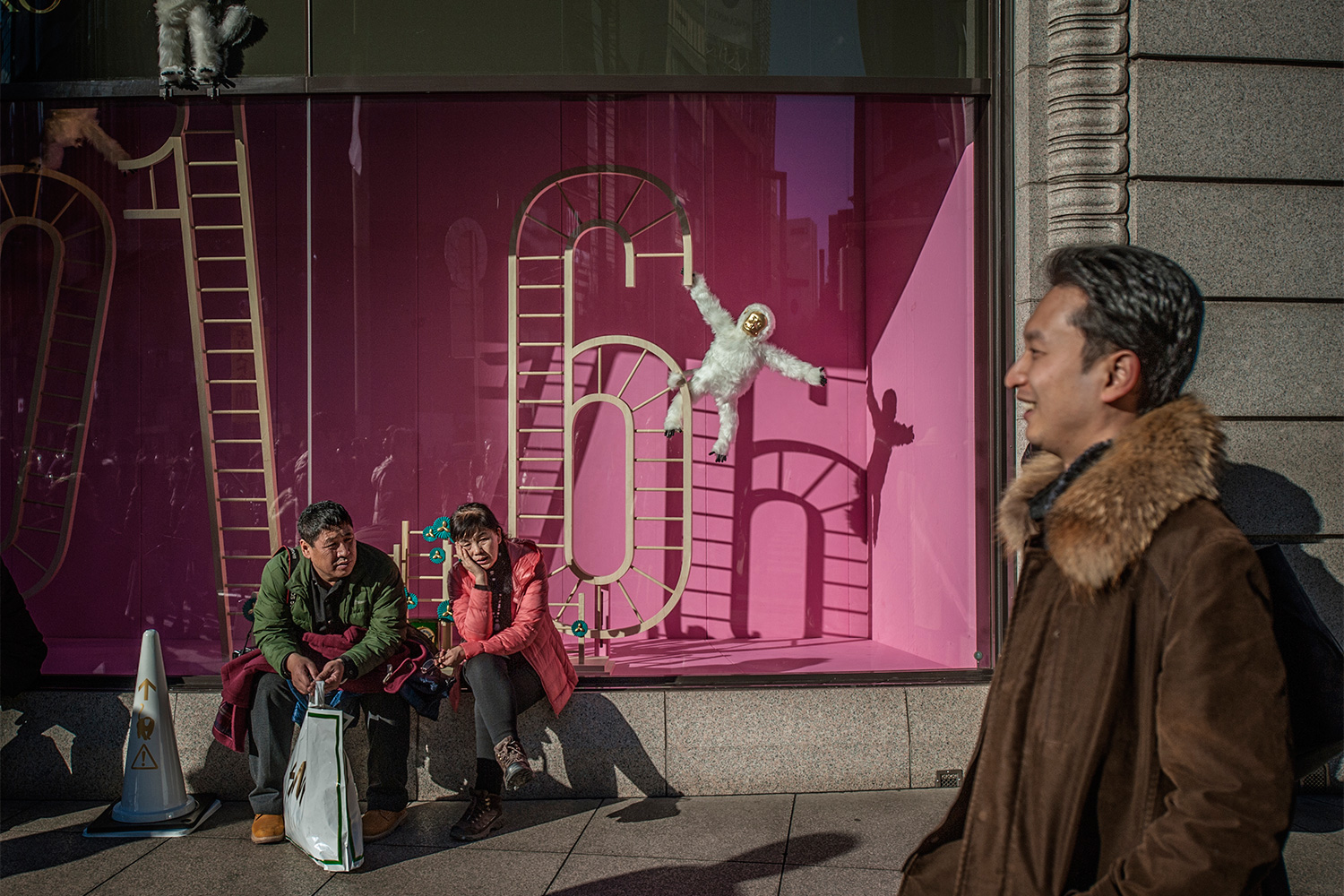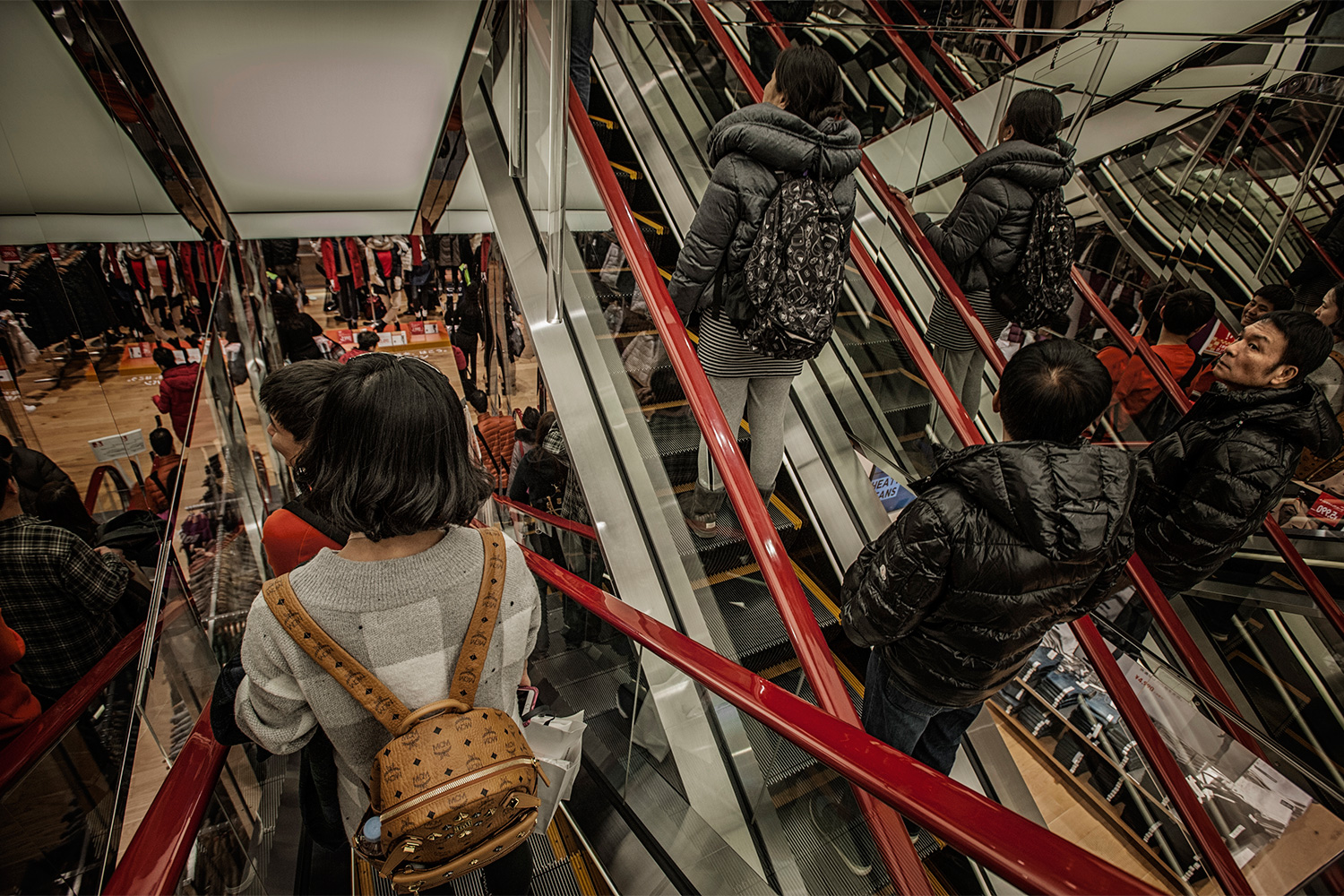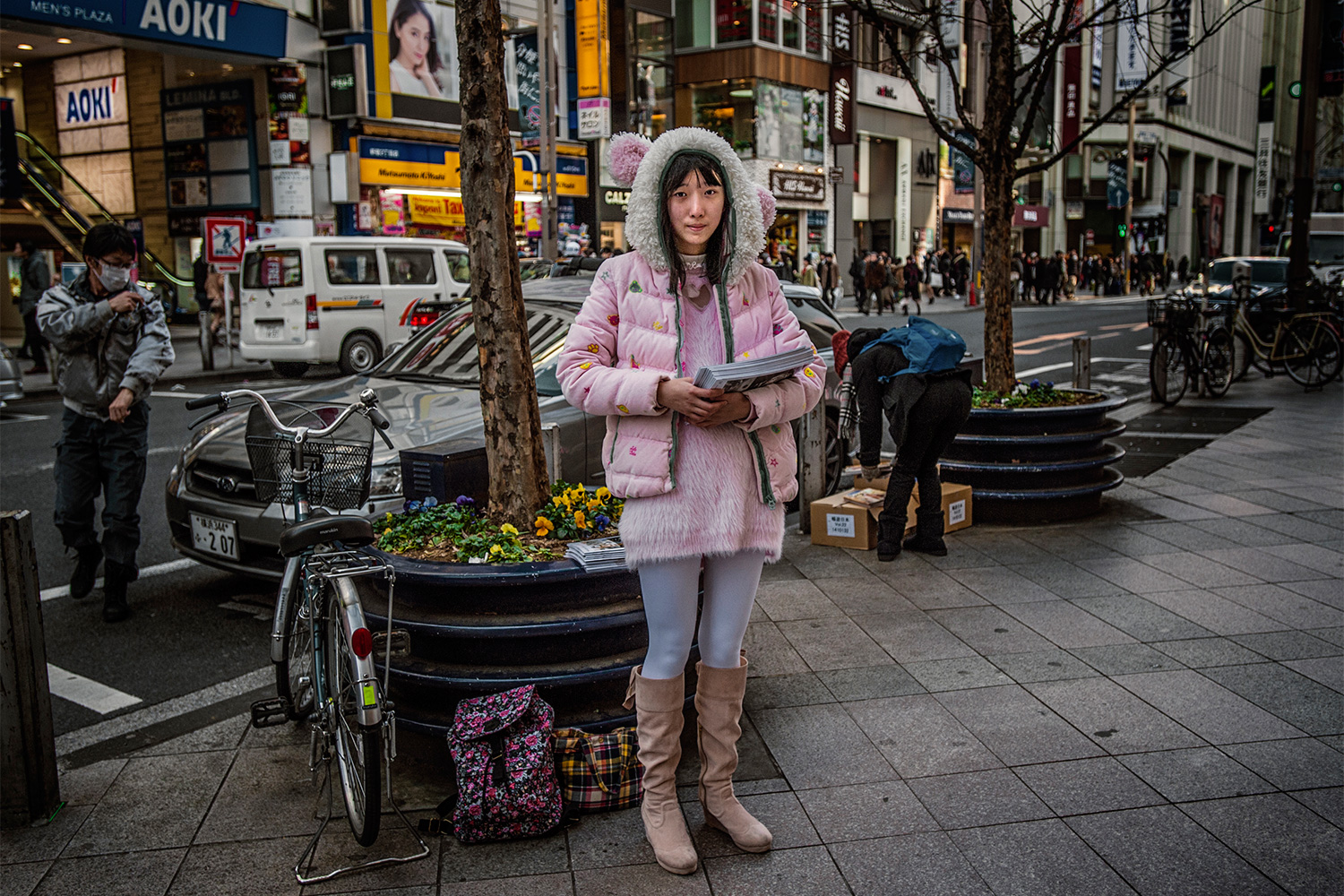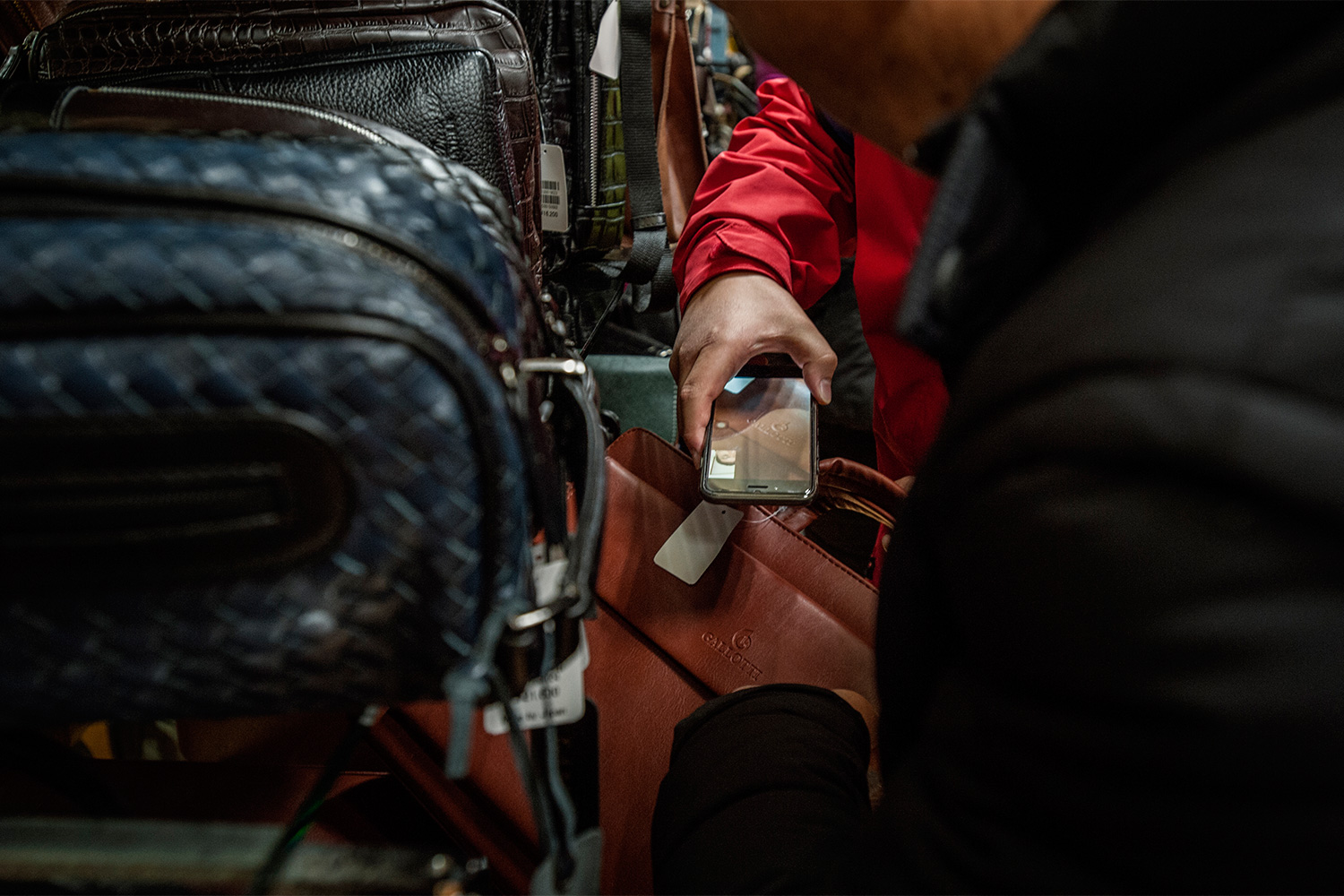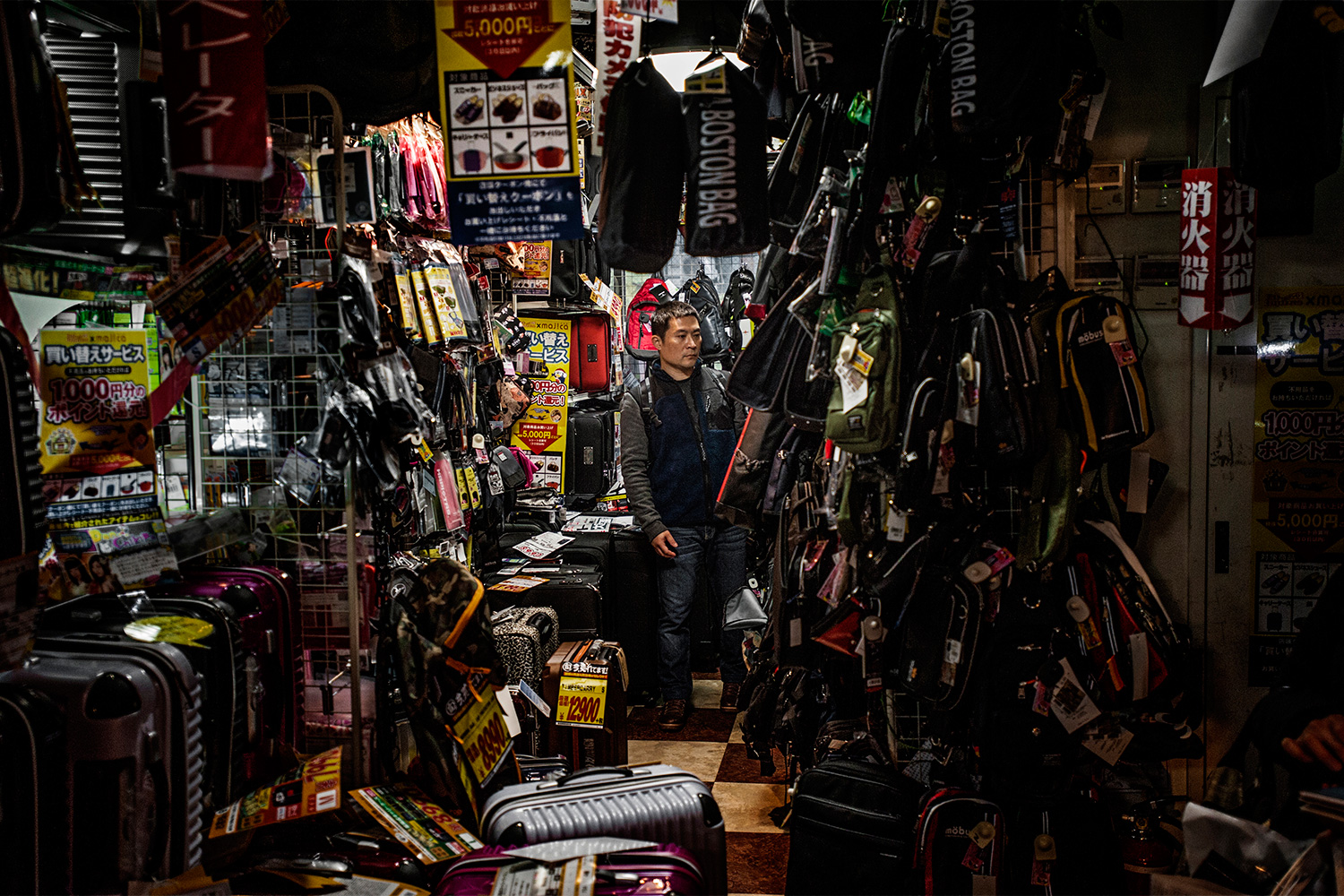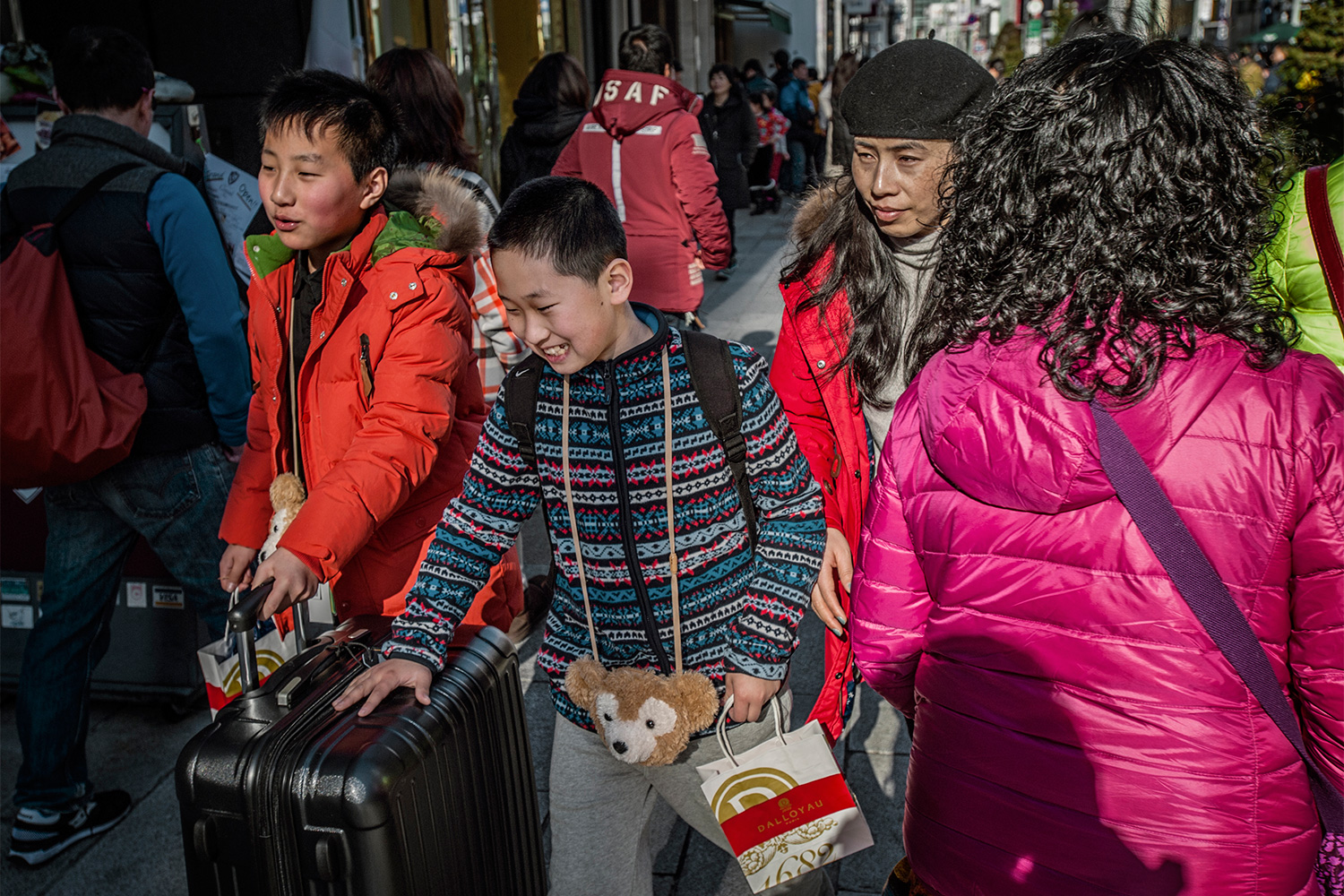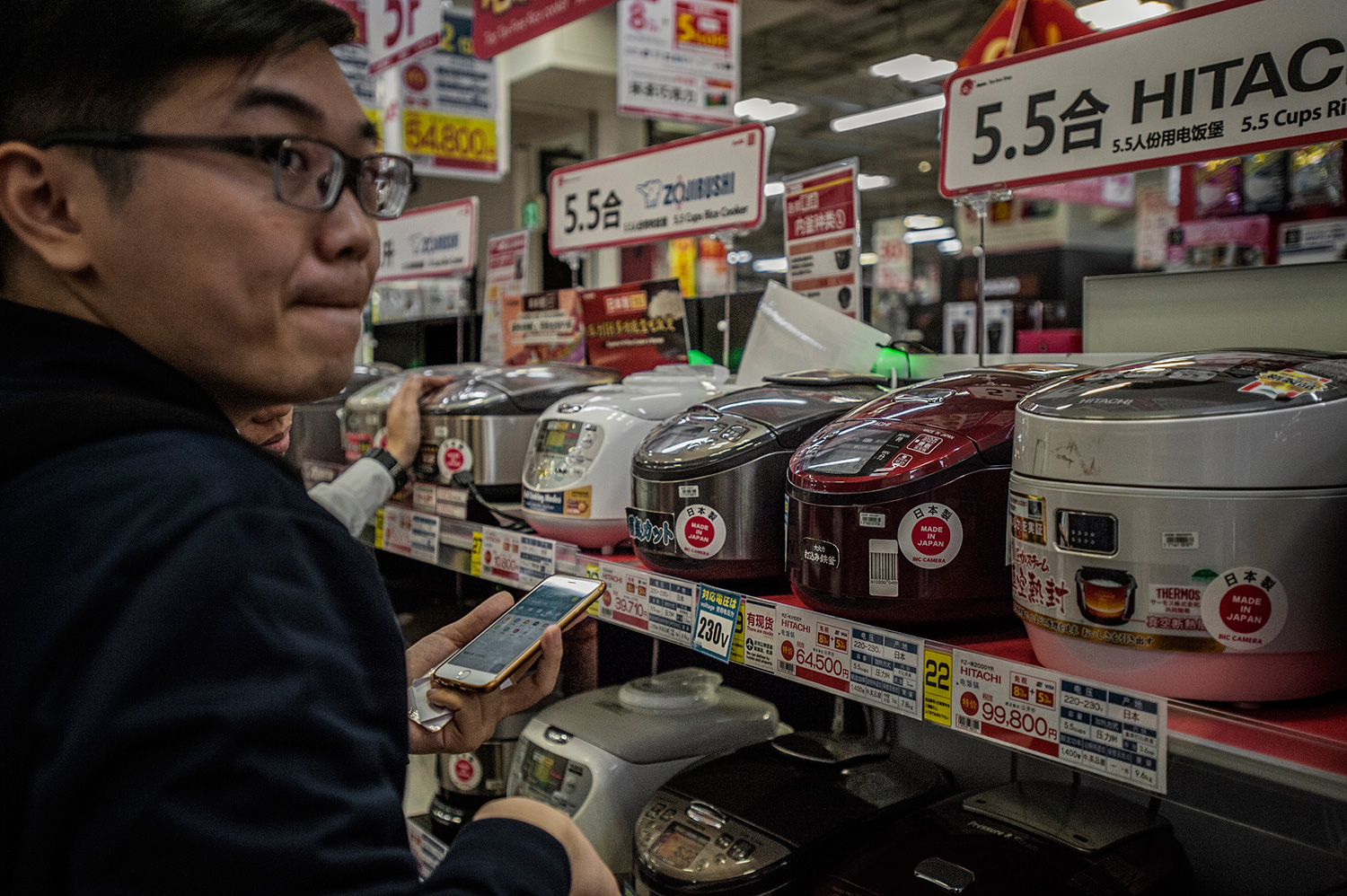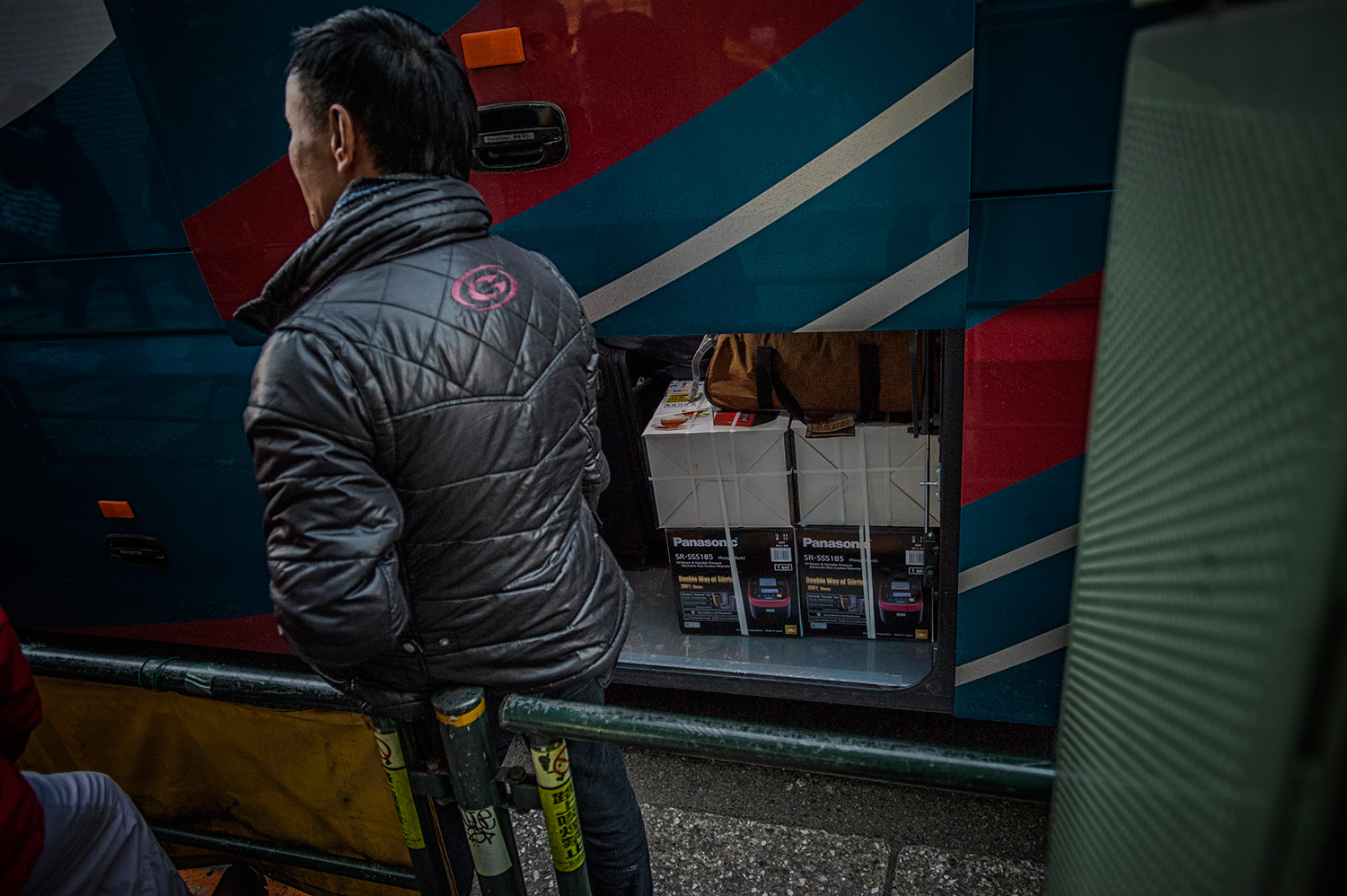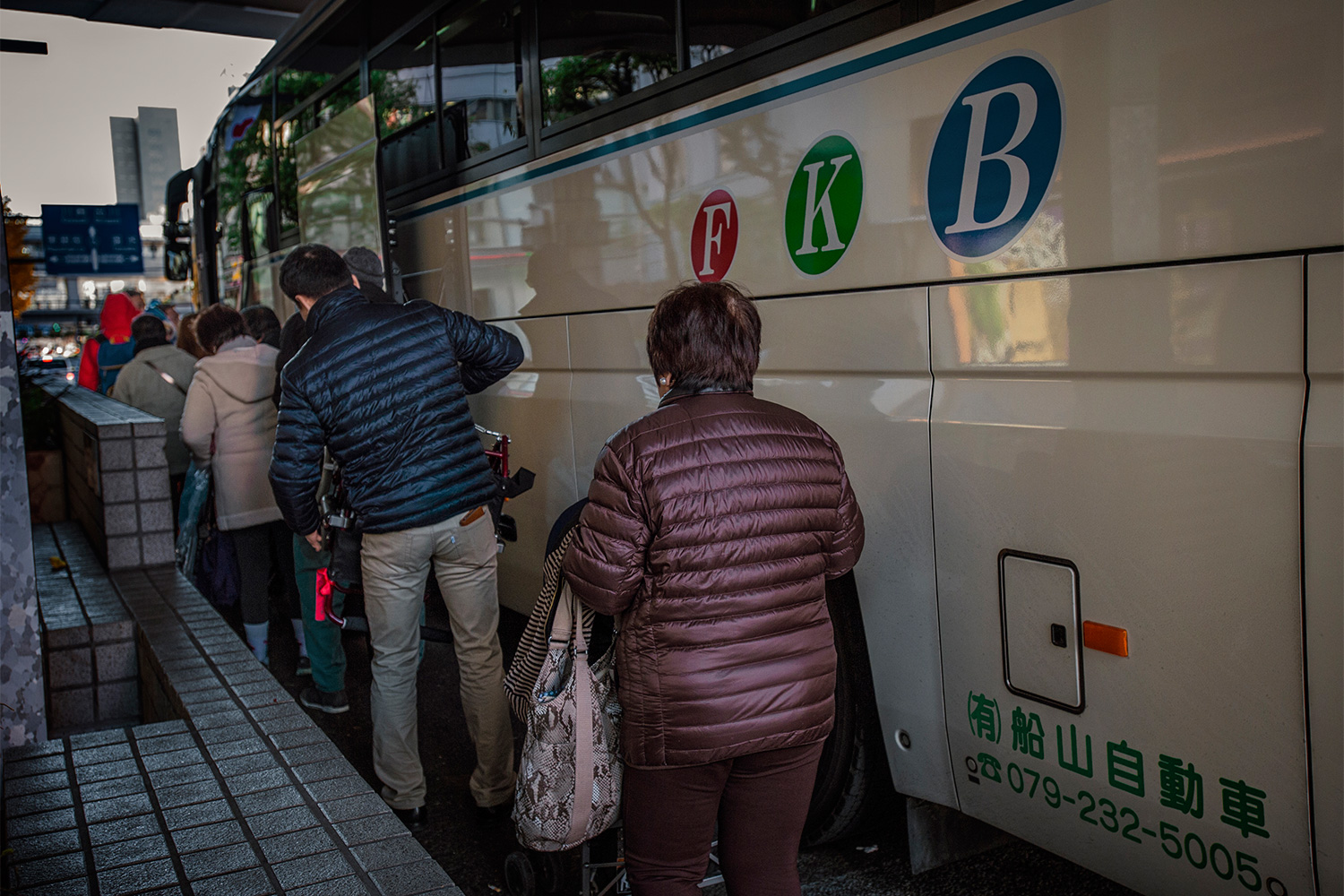History has not favored power-sharing on the world’s most populated continent. For millennia, China dominated as East Asia’s greatest force, its culture shaping civilizations across the region. In a more recent era, Japan reigned, boasting the continent’s mightiest economy and military. The interstices between these empires’ rises and falls were often marked by war. Today, as China eclipses Japan, history buffs might fret about conflict again breaking out between old foes. They haven’t factored in bakugai.
The Japanese term, a compound word made up of “explosion” (baku) and buying (gai), refers to the swarms of Chinese tourists who have descended on Japan in a consumerist frenzy documented by photographer James Whitlow Delano, a longtime Tokyo resident who has also traveled widely in China. Political tensions between the pair of nations—over wartime atrocities, uninhabited rocks, and trade imbalances—still fester. But East Asia’s two great powers have never been more economically intertwined. In 2015, Japan issued 3.78 million visas to Chinese tourists, up 85 percent from the year before. Four out of five foreigners who visited Japan with visas last year were Chinese. A weaker yen helped, of course, as did pollution and consumer-safety scandals in China that made Japan’s manicured confines seem all the more attractive.
Computerized rice cookers and toilets, whitening make-up and smoothing shampoo, aged whiskey and crisp rice crackers, vacuum-sealed thermoses and menthol cigarettes—bakugai consumers want it all. So exuberant were Chinese shoppers that the term bakugai ranked as one of the top two neologisms in Japan last year, according to a publishing firm’s annual list. Delano’s images illustrate the conflicting emotions bakugai must evoke in Japan. On the one hand, the Chinese shopping sprees—cue pictures of tour buses and Chinese hefting bundles of Japanese goods across busy intersections—worry inhabitants of a still insular island nation. The spending power of nouveau-riche Chinese, armed with bejeweled cellphones to calculate the price in yen, reminds Japan that it has for too long teetered on the brink of recession. Yet it’s a relief when a nation’s products are so desired; in a single week-long Chinese holiday last fall, Chinese visitors to Japan lavished 100 billion Yen, or roughly $900 million, on the local economy.
Of course, cultural and economic ties don’t preclude war. Back when Japan defeated Russia at the turn of the last century—marking the first time in modern history that an Asian power had defeated a European one—the nation attracted the region’s best and brightest. China’s Sun Yat-sen, who was to become a national hero, studied in Japan, eager to throw off the yoke of imperialism and learn from a truly modern Asian power. Then came Japan’s invasion of Manchuria and its brutal march across the rest of Asia. This time around, though, the swarms are far more benign, simply shoppers in search of a good deal. The power of bakugai transcends borders.
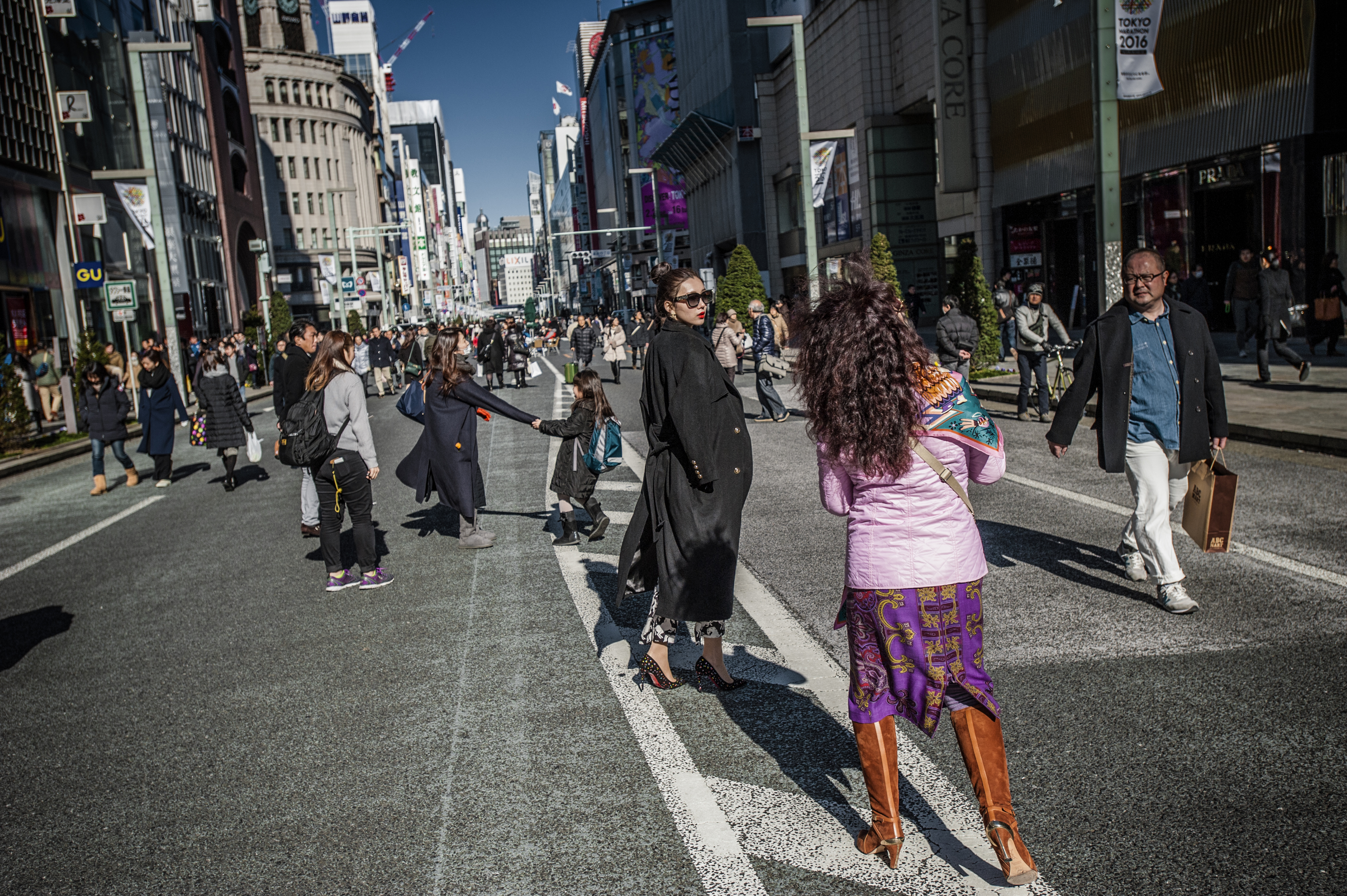 Photo Gallery
Photo GalleryChinese ‘Explosive’ Shoppers in Japan
The photographs in this piece are by James Whitlow Delano. Hannah Beech wrote the accompanying essay.






